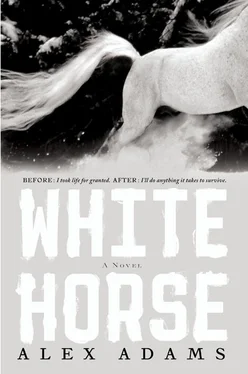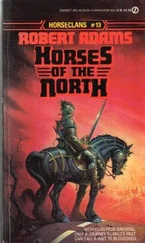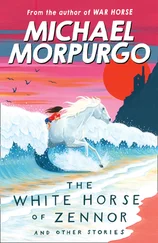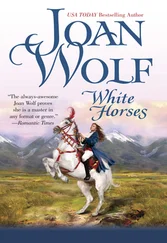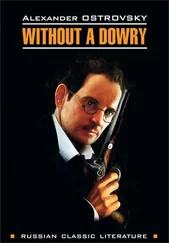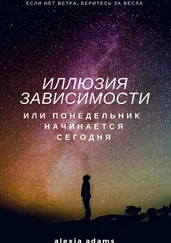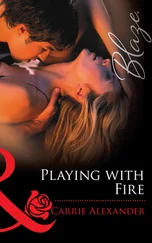Stiffy rubs against my skin, his purr vibrating all the way up to my knees as he figure-eights my shins.
“Aha, so he’s cute, then?”
“Tasty. And smart. Can’t beat that with a stick.”
“Bring him over. I’ll make lasagna.”
The cat detaches himself from my legs and saunters over to the jar. He circles it twice, then sits a foot away, tail tucked neatly around him in a protective ring. With a fascination bordering on obsession, he stares at the jar.
“Curiosity killed the cat,” James says.
DATE: NOW
On the second morning afterwe leave the farmhouse, Lisa vomits. The sky is dim through the thickly leaved canopy that conceals us from the road and sky. Under here, the weather is mostly dry, with a chance of frigid drips.
For once, I don’t. Cold beans scooped from a can with a jagged edge settle in my stomach in a nourishing gelatinous lump.
Up ahead is a village. Maybe two miles away. It’s a black dot on a map, nameless but present. We should go around, avoid contact if there’s any to be made. I look at Lisa bent at the waist, unleashing her beans onto the ground. Her hair is in my hands. Poor kid. Although I run the risk of making myself sick, I glance at the mess she’s made. No blood. At least not yet.
Vitamins. They might have vitamins in the town. We could both use them.
“I’m sorry.”
The retching travels all the way from her toes.
“Don’t be. You can’t help it.”
Her thin shoulders shake. “Do you think I’ve got White Horse?”
White Horse. The plague that killed the world’s population. Some preacher down south with a too-big mouth and a popular cable TV show heard voices from God telling him these were the end-times. Dying people had nothing better to do, so they watched. It was that or listen to the static that used to be daytime television.
That preacher named the virus White Horse.
“The first seal is opened and the white horse has come with its deadly rider to test us with Satan’s disease. Any man, woman, or child who doesn’t believe and accept Jesus Christ as his or her savior will die from this White Horse. The nonbelievers will burn in the pits of hell, wishing they’d had the courage to accept the Lord. They will writhe and burn, their souls thick with maggots. This plague is the white horse. And the other three are coming….”
Everyone assumed it would be a flu-like illness that would knock us out of the evolutionary tree, but it wasn’t anything so merciful. White Horse was like nothing in the medical books except maybe late-stage cancer. The CDC and WHO barely had time to react when people began running to their doctors in droves, toting sick bags and buckets, begging for something to stop the nausea. The vomit turned bloody as the protective cells, designed to stop the stomach acids from burning holes and leaking into the body, sloughed away. Within days the vomiting quit, only to be replaced with nonspecific aches, some more severe than others.
Then a scientist came forward and told us what we had no way of guessing.
“White Horse is not a disease as such. It’s a mutation. Some outside source has flipped switches in our DNA, turning on some genes, turning off others.” He struggled to keep the words simple enough for the public to understand. Speech faded to mumbles when time came for the media to ask their questions. Enlightenment sans illumination.
I could lie and tell her no, or I could lie and tell her yes. So I take the chickenshit truth route.
“I don’t know.”
She speaks through the bile foam. “I don’t want to die.”
I pull a tissue from my pocket so she can wipe her lips.
“We all die sooner or later.”
“Later sounds better.”
“We should make a bucket list,” I say.
“What’s that?”
“It’s a list of everything we want to do before we die at the ripe old age of three digits. Like skydiving. Or swimming in a waterfall.”
“What’s the point?”
The absurdity of our situation fills my eyes with hot tears. Two women standing alone at the end of the world, talking about things we want to do before we die. We’ll be lucky to get one last hot meal.
“Fun,” I tell her. “There’s a village up ahead. I thought maybe we’d check it out. What do you think?”
“What would you do if I wasn’t here?”
“Probably go around.”
“So, why aren’t we?”
“Because they might have medicine.”
“Do you think I’m going to die soon?”
I shake my head, let the rain take my tears where it will.
“I want to get married and have a family,” she says. “I’m going to put that on my list.”
DATE: THEN
“Forget it,” I tell Jenny.
My sister’s voice is Minnie Mouse with a dash of fingernails down a chalkboard, but only when she wants to bend me to her will.
“But he’s really nice. You’ll love him. Or maybe you’ll just love him a time or two.” I picture her waggling her eyebrows as she encourages me to have casual sex. Our mother would love that.
“Nice,” I say.
“And dreamy gorgeous.”
“I have to wash my hair that night.”
“I already told him about you. You have to come.”
“Then untell him.”
There’s a gap in her chatter. “You almost had me for a second. I can’t. That would be rude. You have to come.”
“I won’t,” I say, and hang up.
My mother rolls out theguilt parade and slaps my buttons like my psyche is a game of Whac-A-Mole.
“…two years,” she drones on. “That’s how long it felt. You were the stubbornest baby ever. Not like your sister. At least she had the courtesy to come two weeks early. Three hours. She wanted to come out. Not like you. That was the longest thirty-six hours of my life….”
I have two choices: attend my sister’s dinner party or tie a plastic sack around my mother’s head until she runs out of nagging. I choose the evil that doesn’t come with a felony conviction.
DATE: NOW
The village appears over the road’s hump: Aphrodite rising from the water. She steps through the never-ending drizzle to greet us. There’s no knowing whether she’s friend or foe, but I guess she could say the same about us. In this world everything is a fat question mark. Taxes are no longer certain—only death.
We pass under a stone arch, the reddish brown of clay earth. The whole village is garbed in this same shade: clusters of earthen cottages with shallow porches and roughly shingled roofs; a handful of shops with wares gathering dust behind grimy windows; a church with its windows shuttered and high wooden doors bolted.
There is a calm that feels anything but peaceful.
We stop. Turn. Inspect the deserted street. Nothing moves. Not even a twitch of lace in a window.
“There isn’t anybody here.” Lisa cups her hands, yells through them. “Hello?” Her words ricochet off the deserted buildings.
“Don’t.”
Her hands fall away. “I didn’t think.”
“It’s okay. It’s just best to be quiet, that’s all.”
“Why? What do you think is out there?”
“Desperate people.” And monsters.
“My dad said that’s why we had to stay at the farm. Because at least there we had food and no one was trying to fight us for it.”
“He was right.”
“Do you think we should go back?”
I don’t answer. My attention is on what appears to be a small grocery store. Neat stacks of preserves in ribbon-wrapped jars fill the lower third of the window display. Fruit and sugar. Our bodies could use both.
“Do you hear anything?”
Читать дальше
